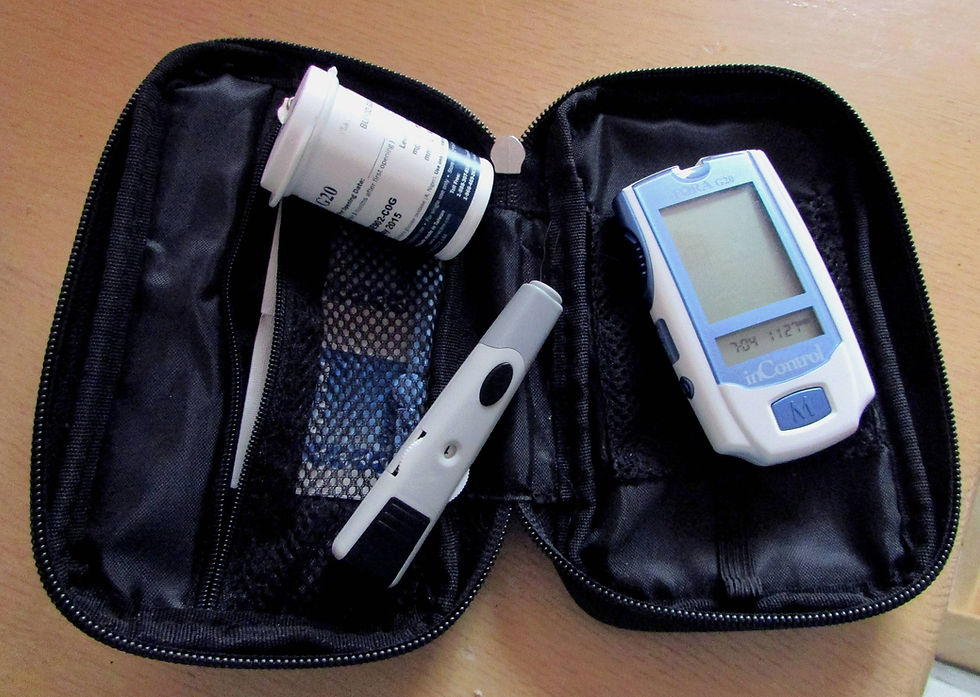Sweet Wisdom: 10 Surprising Benefits of Honey You Might Not Know
- thereawakenednurse
- May 5
- 4 min read
Plus: How to Spot the Real Stuff from the Fake!

Disclaimer: This post contains affiliate links. If you click and make a purchase, I may earn a small commission at no extra cost to you. I only recommend products I truly believe in.
Whether you're drizzling it on toast or stirring it into tea (or maybe a hot toddy), raw honey packs potent—and often overlooked—health benefits. Here are ten reasons to keep a jar close by!
This blog post will be short and sweet (pun intended)!

A Sticky Slice of History
Honey has been cherished for thousands of years. Ancient Egyptians, Greeks, and Romans used it not only as a sweetener but also for medicine and religious rituals. Cave paintings in Spain, dating back over 8,000 years, show humans harvesting honey from wild hives.

One of honey’s most surprising traits? Its shelf life. In 2015, archaeologists discovered 3,000-year-old honey in Egyptian tombs—still perfectly edible. Thanks to its low water content and natural acidity (pH 3.5–4), bacteria can’t grow in it.
Made mostly of fructose, glucose, and water—with trace amounts of vitamins, minerals, enzymes, and antioxidants—honey’s composition depends on the nectar sources bees collect from. One tablespoon has about 64 calories and 17 grams of sugar, but the benefits go beyond the sweet.

10 Sweet Health Benefits of Honey
1. Better Sleep
A spoonful of honey before bed may help boost melatonin levels and improve sleep by raising insulin slightly and allowing tryptophan into the brain.
2. Wound Healing Superpowers
Honey (especially raw or Manuka) contains proteins like defensin-1 that help heal wounds and burns by promoting new skin cell growth.
3. Acid Reflux Relief
Honey may soothe the esophagus and stomach lining, potentially reducing symptoms of acid reflux—though more research is needed.
4. Gut-Friendly Prebiotic
Honey contains oligosaccharides, which feed beneficial gut bacteria like Lactobacillus and Bifidobacteria, improving digestion and gut health.
5. Natural Antimicrobial
Manuka honey in particular is a germ-fighting powerhouse, thanks to its hydrogen peroxide and defensin-1 content.
6. Cold & Cough Remedy
A 2014 study showed that a honey and milk mix was just as effective at calming coughs in children as over-the-counter meds.
7. Anticancer Potential
Flavonoids and polyphenols in honey may help slow cancer cell growth and even promote cell death in tumors—though more human studies are needed.
8. Asthma Support
Folk remedies weren’t wrong—honey may help reduce airway inflammation and ease asthma symptoms.
9. Glowing Skin
Honey's anti-inflammatory and antimicrobial properties can help reduce acne, redness, and irritation. DIY face mask, anyone? See a great a simple recipe down below!
10. Heart Helper
The antioxidants in honey can improve blood flow, lower inflammation, and possibly reduce heart disease risk.

Risks to Keep in Mind
Even sweet things have a dark side:
Infant Botulism: No honey for babies under one year—it can contain spores harmful to infants.
High Sugar Content: Honey is healthier than refined sugar but still needs to be eaten in moderation to avoid weight gain or blood sugar spikes.
Allergies: Rare, but some people may react to pollen or other natural compounds in honey.
Not a Miracle Cure: While studies show promise, honey isn’t a magic bullet for every condition. Use it as a supplement—not a substitute—for medical treatment.
Final Thoughts
With its antimicrobial, anti-inflammatory, and antioxidant properties—not to mention the fact that it practically lasts forever—honey is much more than just a sweet treat. It’s a natural remedy, a skincare essential, and a wellness staple in cultures around the world.

But beware: honey is also one of the most commonly counterfeited foods.
The best way to ensure you're getting the real deal is to buy directly from a local beekeeper or at a farmers' market, where the honey is more likely to be raw, unfiltered, and harvested with care. These producers often provide details about the floral source, region, and even the hive.
If you don’t have access to a local source, grocery store honey can still be trustworthy—you just need to read carefully.
Look for labels that say “raw,” “unfiltered,” or “100% pure honey.” Then check the ingredient list. If anything other than “honey” is listed—like glucose, corn syrup, or added flavors—you’re dealing with an imposter. Also examine the source and manufacturer info near the nutrition label; vague or missing sourcing is a red flag.
So, choose wisely and keep a jar of the good stuff in your pantry—for your health, your skin, your tea, or your next cold! (Recipes below!)
It’s nature’s medicine in a jar.

References Used:
Recipes:
Hot Toddy
Ingredients:
1 tbsp. mild honey |1 oz. Bourbon/whiskey | ¼ c. boiling hot water | 2 tsp. fresh lemon juice.
Directions: Pour bourbon/whiskey, honey, and lemon juice in a mug. Heat water in microwave or kettle. Once hot, pour water into mug and stir until honey has dissolved. Add a lemon round and enjoy!
Honey Lemon Tea
Ingredients:
1 cup hot water (not boiling) | 1 tbsp. raw honey | 1 tbsp. fresh lemon | A slice of ginger or pinch of cinnamon (optional)
Directions: Heat water until it is hot but not boiling. Add the lemon juice and stir in honey until fully dissolved. Add your optional ginger slice or cinnamon. Nothing left to do but enjoy!
Honey Face Mask
Ingredients:
1 tbsp. raw honey | 1 tbsp. plain yogurt
Directions: Mix honey and yogurt until well combined. Apply generously to your face, avoiding your eyes. Leave on for 15-20 minutes. Rince with warm water and washcloth.
This mask will leave your face hydrated and smooth!



Commentaires